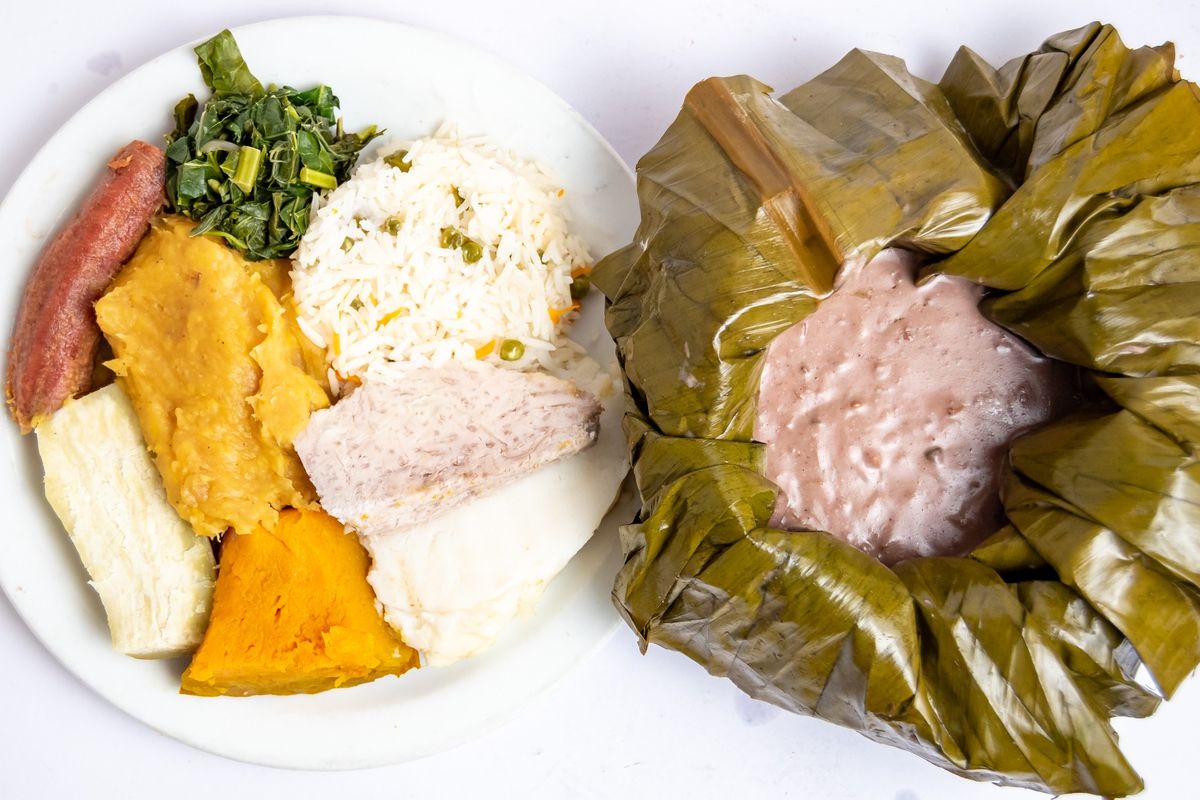Are There Vegan Meal Options on Group Safaris?
Group safaris are one of the most exciting and immersive ways to explore Africa’s breathtaking landscapes and incredible wildlife. From the rolling savannahs of the Serengeti to the wetlands of the Okavango Delta, safaris connect you to nature in a way that few other experiences can. But if you’re vegan—or traveling with dietary restrictions—you might be wondering: Will there be food for me?
The short answer is: Yes, there are vegan meal options on group safaris. But the real answer is a little more complex. It depends on your destination, your tour operator, how remote the areas you’re visiting are, and how well you’ve communicated your dietary needs in advance.
This article offers a comprehensive look into veganism on safaris, including what to expect, how to prepare, tips from vegan travelers, and recommended destinations and safari companies that cater to plant-based diets.

Understanding the Challenges of Veganism on Safari
Before diving into solutions, it’s important to understand the logistical landscape of going vegan on a group safari:
-
Remote Locations
Safaris often take place in remote areas far from towns or cities. In places like the Maasai Mara, Bwindi Impenetrable Forest, or Namibia’s Skeleton Coast, ingredients can be limited to what’s available locally or what can be transported in. You might not find a wide array of plant-based dairy alternatives or meat substitutes in these areas. -
Fixed Meal Plans on Group Tours
Group safaris usually come with set meal plans. Buffets or pre-prepared dishes are common, and options are generally designed for a majority of guests. Unless your needs are communicated in advance, you may end up with limited or non-vegan-friendly options. -
Cultural and Culinary Norms
In many African countries, meat plays a central role in cuisine and culture. For example, nyama choma (roasted meat) is a staple in East Africa. This can present challenges if local chefs are unfamiliar with veganism.
The Rise of Vegan Tourism
The good news is that vegan travel is no longer a niche. According to global hospitality trends, plant-based travel is on the rise. Safari companies and lodges are adapting to this shift. More tourists than ever before are requesting vegan, vegetarian, gluten-free, or allergy-sensitive meal plans.
Eco-lodges and luxury camps especially tend to be more vegan-friendly. Many pride themselves on offering organic, locally sourced ingredients, and are open to adapting menus for dietary preferences.
Some high-end safari operators even employ trained chefs who are familiar with international dietary standards and can accommodate veganism without compromising taste or variety.
Vegan Meal Options You Can Expect on Safari
If you’ve informed your tour operator or safari lodge in advance, here’s what you might find on your plate:
Breakfast
-
Fresh fruit platters (papaya, pineapple, mango, watermelon)
-
Avocado toast (request without butter)
-
Porridge made with plant milk or water (ask for oats, millet, or maize-based)
-
Vegan pastries or muffins (in some upscale lodges)
-
Roasted sweet potatoes or cassava
-
African spiced tea or coffee with soy, oat, or almond milk (if available)
Lunch and Dinner

-
Vegetable stews (okra stew, groundnut sauce, bean dishes)
-
Rice, chapati, and grilled plantains
-
Roasted vegetables with spices and herbs
-
Lentil soups or chickpea curries
-
Salads with avocado, nuts, seeds, and seasonal greens
-
Stir-fried or sautéed mushrooms and local greens
-
Couscous or quinoa dishes
-
Tofu or tempeh (occasionally available in urban lodges)
Snacks and Safari Lunch Packs
-
Nuts, dried fruit, and seed bars
-
Fresh fruit
-
Peanut butter sandwiches or wraps with hummus and vegetables
-
Vegan jerky or energy balls (bring from home if you’re unsure)
Communication Is Key
To ensure a smooth experience, communication is your best tool.
-
Inform Tour Operators Early
When booking, clearly state that you’re vegan and request plant-based meals. Many safari companies will ask for dietary restrictions during the booking process. The earlier you inform them, the better they can prepare. -
Be Specific
Explain what being vegan means to you. In many places, people may confuse veganism with vegetarianism, and still serve dairy, eggs, or even fish. Clarify what you do not eat (e.g., meat, dairy, eggs, honey, animal broth). -
Follow Up
A week before your trip, send a follow-up email to confirm your dietary preferences have been noted and planned for. -
Request Translations
If you’re traveling to non-English-speaking areas, bring a small translation card explaining your vegan needs in the local language. This is helpful in restaurants, markets, or with chefs who may be unfamiliar with the term.
Self-Drive vs Group Safari: Which is Better for Vegans?
On a group safari, meals are usually prepared for you, which saves time and effort. However, the downside is less control over your diet unless prior arrangements are made.
On a self-drive safari, you have more freedom to cook or choose where to eat, especially in towns or national parks with multiple accommodation options. If you enjoy cooking or want to bring vegan supplies from home, this is a great choice.
Destinations Known for Vegan-Friendly Safaris
Some African safari destinations are more vegan-friendly than others due to infrastructure, tourism development, and culinary diversity.
1. South Africa
Cape Town is a vegan haven, with restaurants offering everything from vegan burgers to raw vegan desserts. Many safari lodges in Kruger National Park or the Garden Route cater to plant-based diets. South Africa also has good supermarket chains (like Woolworths and Checkers) that stock vegan products.
2. Kenya
Nairobi has a growing vegan scene, and many luxury safari camps in the Maasai Mara are accustomed to international tourists with dietary needs. You’ll also find abundant fruits, grains, and legumes in the local cuisine.
3. Tanzania
Arusha and Moshi, gateway cities to Serengeti and Kilimanjaro, have vegan-friendly cafés. Tanzanian cuisine naturally includes lots of rice, beans, and vegetables. Still, communicate your needs well in advance for camps deeper in the bush.
4. Uganda
In Uganda, staples like matoke (steamed bananas), posho (maize meal), and groundnut sauce are naturally vegan. While rural areas may not offer specialty items, plant-based food is widely available. Kampala also has several vegetarian restaurants.
5. Namibia and Botswana
More remote but still possible with preparation. Inform your tour provider early, and bring vegan snacks and supplements.
Tips for a Seamless Vegan Safari Experience
Here are practical tips from seasoned vegan travelers who’ve gone on African safaris:
-
Bring Your Essentials
Pack items like nutritional yeast, protein powder, instant oats, trail mix, energy bars, or plant-based milk powder. These help when choices are limited. -
Pack a Small Cooler Bag
Especially useful on long drives or game-viewing days. Stock it with snacks or sandwiches if you’re unsure what the lodge will serve. -
Use Travel Apps
Apps like HappyCow can help you find vegan-friendly restaurants in towns or cities en route. -
Stay at Eco-Lodges
Many eco-lodges prioritize sustainability and offer plant-based meals by default. Some even grow their own food and have in-house nutritionists. -
Be Flexible but Assertive
Sometimes mistakes happen—like receiving a salad with cheese or a soup made with chicken broth. Be polite but clear. Most staff will correct it quickly if they understand your needs.
What Vegan Travelers Are Saying
“I was worried at first, but I ended up eating some of the best vegan food of my life in Kenya. From lentil stews to fresh mangoes, the meals were amazing!” — Sasha, USA
“South Africa’s safari lodges totally surprised me. They had almond milk, vegan desserts, and even barbecued jackfruit. Totally didn’t expect that in the bush.” — Luca, Italy
“On my Uganda trip, I ate a lot of chapati, beans, matoke, and g-nut sauce. The food was simple but hearty and delicious.” — Priya, UK
“My lodge in Tanzania made a full vegan menu just for me. I had coconut rice, veggie samosas, and roasted squash—it was heaven.” — David, Australia
Safari Companies with Vegan-Friendly Options
Here are some tour operators and safari lodges that are known to cater to vegan diets:
-
Asilia Africa (Kenya, Tanzania) – Known for eco-conscious safaris and excellent food
-
G Adventures – Offers small group safaris with customizable meal preferences
-
Wilderness Safaris – Operating in Botswana, Namibia, and other southern African countries, with top-tier hospitality
-
Alpha Rent A Car Ltd (Uganda) – Offers custom safari plans including camping and self-drive options, suitable for vegan travelers bringing their own food
-
Intrepid Travel – Offers vegan meal add-ons and plant-based itineraries
-
Volcanoes Safaris (Uganda & Rwanda) – Focuses on sustainability and cultural immersion with plant-based menu options
You Can Safari and Stay Vegan!
So, can you go on a group safari as a vegan and still enjoy delicious, satisfying meals? Absolutely. With a bit of preparation, clear communication, and the right choice of tour operator or lodge, you’ll find that not only is it possible—it can be a culinary adventure of its own.
Africa is diverse, bountiful, and increasingly aware of global dietary trends. From rich stews in Uganda to fruit feasts in Kenya and gourmet plant-based meals in South Africa, vegan travelers can savor the experience fully. Book Now!









